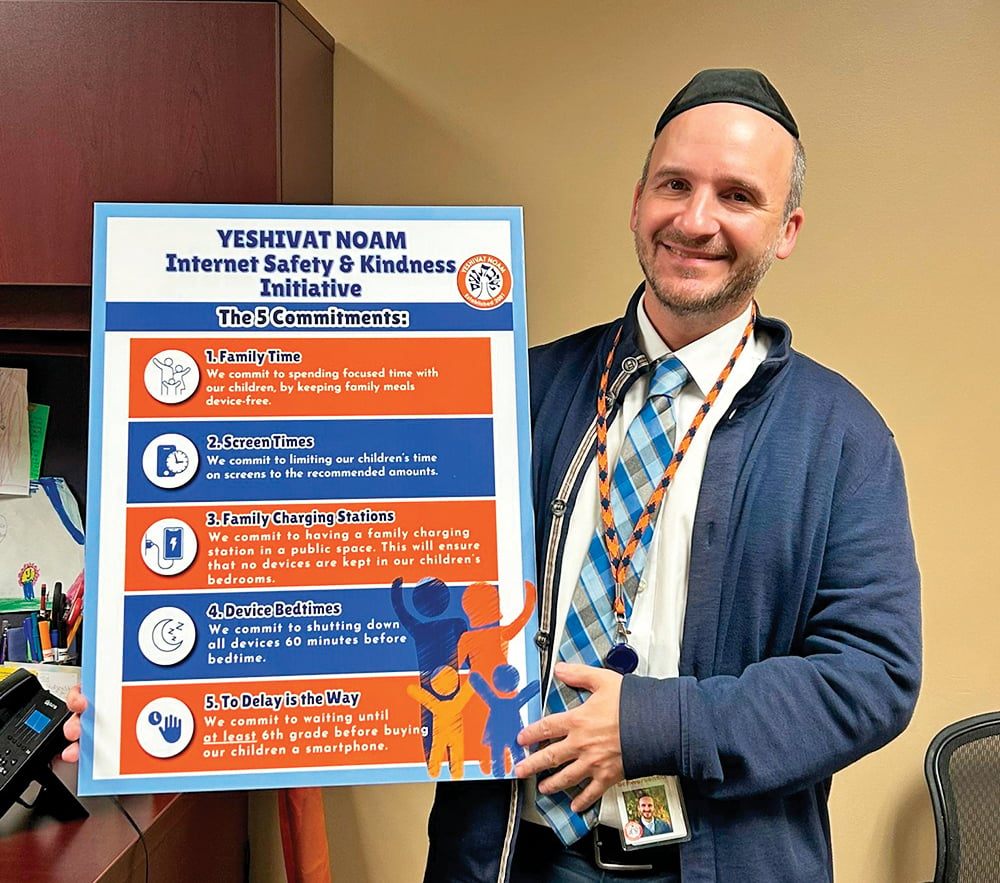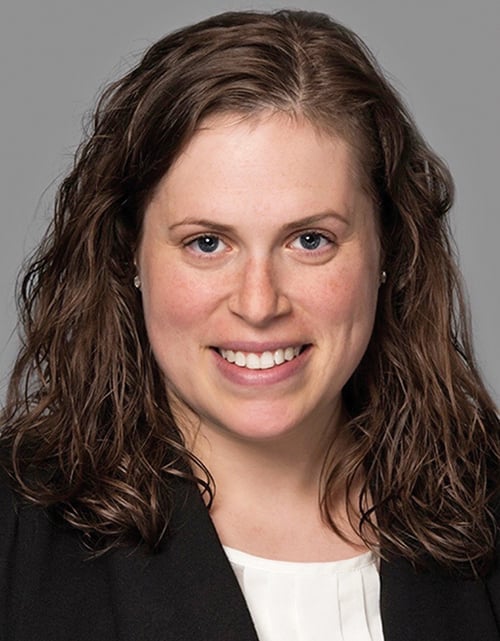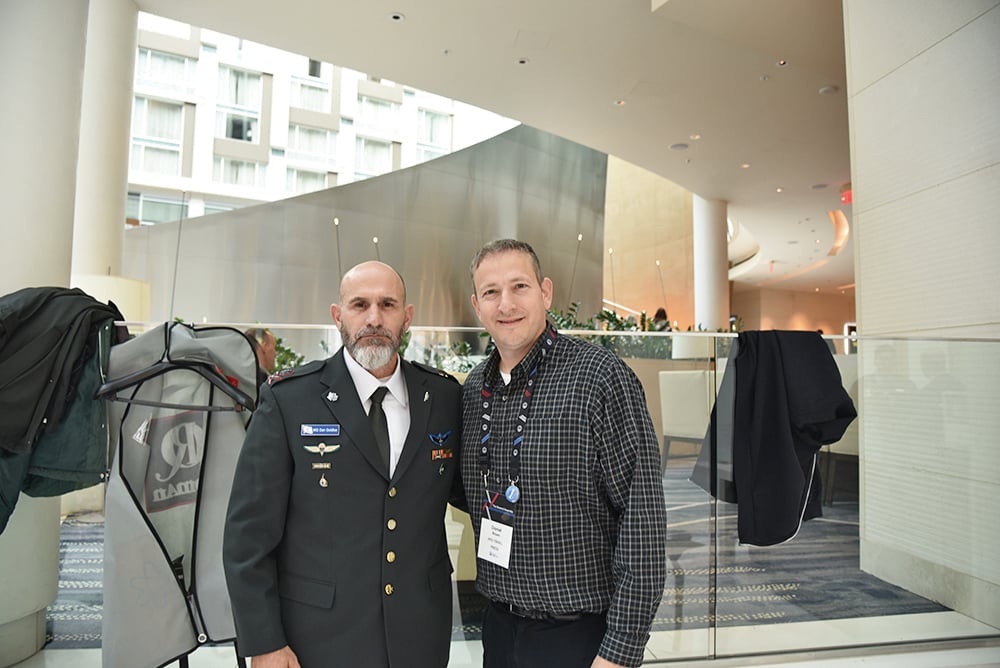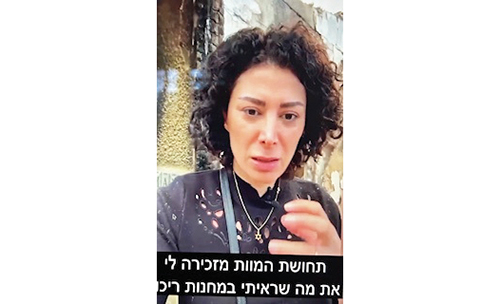In the rural Ukranian shtetl of Teplik, there was an ehrliche yid—a Breslover chassid—known as “Feivel-Ashreinu.” A sincere and (seemingly) simple tailor—each night, he would rise at midnight to recite tikkun chatzos and mourn over the Beis Hamikdash. He would pour his heart out in prayer, crying rivers of tears over the state of the world and the exile of the Shechina. Upon completing his nightly lament, he would stand up from the floor—his clothing dusty from the dirt—brush himself off and begin to sing אשרינו מה טוב חלקנו, “How fortunate are we, how pleasant our lot!” Over and over again, with passion, fervor and great joy, he sang, clapped and danced—celebrating the great pleasure and privilege of being a Jew. When the townsfolk became aware of his practice, they snickered in derision, and mockingly began to call him, “Feivel-Ashreinu.”
Whenever Reb Nosson Breslover would visit Teplik, Feivel would joyously come out to greet him. Reb Nosson enjoyed Feivel’s company and Feivel looked forward to spending time with Rebbe Nachman’s prized talmid. One time, when Reb Nosson arrived in Teplik, Feivel failed to appear. When Reb Nosson asked about his whereabouts, the locals weren’t sure which Feivel he was referring to; there were a couple of Yidden with that name in town. When Reb Nosson made clear who he meant, they chuckled in jest, “Ah! You must mean Feivel-Ashreinu! Since you were here last, he passed away.”
Reb Nosson understood what it was that prompted them to deride him—if even ever so slightly—and reprimanded the townspeople. “I’ll tell you this,” Reb Nosson said, “One of the punishments of the next world, the experience called ‘Olam HaTohu,’ is being forced to repeat over and over the habitual acts that we did in this world, as a way to fix the precious time that we wasted here. While others will be doomed to perform the same foolish acts they did in this world, Reb Feivel’s ‘punishment’ in the next world will be to say tikkun chatzos and then sing and dance, ‘Ashreinu mah tov chelkeinu.’ Is that any reason to degrade him?”
~
מִי מָנָה עֲפַר יַעֲקֹב … תָּמֹת נַפְשִׁי מוֹת יְשָׁרִים וּתְהִי אַחֲרִיתִי כָּמֹהוּ
“Who can count the dust of Yaakov? … May my soul die the death of the upright and let my end be like his,” (23:10).
… כָּעֵת יֵאָמֵר לְיַעֲקֹב וּלְיִשְׂרָאֵל, מַה־פָּעַל אֵ-ל, הֶן־עָם כְּלָבִיא יָקוּם וְכַאֲרִי יִתְנַשָּׂא
“… In time, it will be said to Yaakov and Yisrael, ‘What has Hashem wrought?’
Behold, a people that rises like a lioness and raises itself like a lion!” (23:23-24).
Bilaam’s intent to curse us is transformed into wondrous praise: “Who can count the dust—who can begin to appreciate the extent through which Am Yisrael sanctifies and uplifts all of creation?” As Rashi points out: אֵין חֶשְׁבּוֹן בַּמִּצְוֹת שֶׁהֵם מְקַיְּמִין בְּעָפָר—“(Even) the number of mitzvos we fulfill with dust and dirt are innumerable.” Divine laws of great detail govern the how, what and when of plowing and planting. A range of mitzvos, from כיסוי הדם—covering the blood after shechita, to the sanctity of the ashes of the parah adumah and the dust of the floor of the Mishkan play significant “roles” in the life and rituals of klal Yisrael—drawing our attention to appreciate and sanctify that which may seem lowly or worthless. Through the prism of Torah and experience of a life of Yiddishkeit, even dust and dirt are infused with holiness and meaning.
~
The great rav and posek of Kovno, Rav Yitzchak Elchanan Spektor was once confronted by a Russian antisemite who contemptuously challenged the rav: “You are a lowly people who serve no purpose; the world would be better off without you and the problems you cause. What contribution to humanity justifies your existence?” Rav Yitzchak Elchanan did not flinch.
Instead of feeling threatened or upset, the great rav was filled with joy. Those present were confused. Smiling, he responded by quoting our pasuk: כעת יאמר ליעקב ולישראל—“‘At that time, it will be said to Yaakov and Yisrael … ’ At that time, when our enemies question our right to exist and say about us, מה פעל א-ל—“For what reason did God bother to create you,” it means that the rest of Bilaam’s words will be fulfilled as well: הן עם כלביא יקום וכארי יתנשא—‘Behold, the people will rise in like a lion cub and raise itself like a lion!’”
Once again, unabashed antisemitism has become the “acceptable” norm around the globe. We face enemies who don’t simply disagree with us; they call into question our very right to exist. Yet—even with great losses and tragedies we have gone through—we are witness to, and part of, a wondrous awakening of nishmas Yisrael, Jewish identity, pride and strength. We are a dor nitzachon—a generation of victors, led by the sacrifices and dedication of our holy soldiers, whose gevurah and idealism is unmatched in perhaps all of Jewish history. Again and again (and may there be no more!), we are overwhelmed by the “last letters” written by our heroic chayalim (soldiers), addressed to their families, loved ones and all of klal Yisrael. These letters of tzavaah—“last will and testament,” teach us not only how to die a מוות ישרים—“an upright death,” but how to live “al kiddush Hashem,” for the sake of the land and nation of Israel.
We have not yet even begun to process the depth of grief and lamentation over what we have lost this year, and this week marks the start of bein hametzarim—our national period of reflection, “sitting in dust and ashes” mourning over every churban that has come upon our holy city, land and people. But this year, מעפר קומי!—“From the dust, may we arise!” May the millennia in which Jews needed to recite tikkun chatzos come to an end. May we arise from mourning, brush off the ashes of exile, and celebrate on the holy soil of Eretz Yisrael, dancing and singing, “Ashreinu mah tov chelkeinu!”
כִּי־רָצוּ עֲבָדֶיךָ אֶת־אֲבָנֶיהָ וְאֶת־עֲפָרָהּ יְחֹנֵנוּ
“For Your servants delight in its stones and cherish its dust (Tehillim, 102:15).”
Rabbi Judah Mischel is executive director of Camp HASC, the Hebrew Academy for Special Children. He is the mashpiah of OU-NCSY, founder of Tzama Nafshi and the author of “Baderech: Along the Path of Teshuva.” Rav Judah lives in Ramat Beit Shemesh with his wife Ora and their family.













